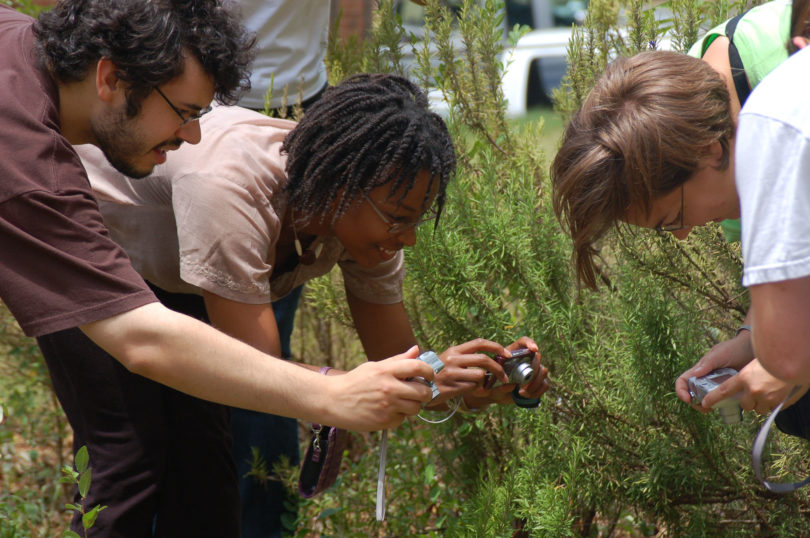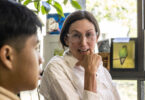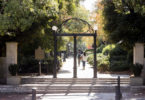Athens, Ga. – DiscoverLife.org, an online interactive encyclopedia created by associate professor John Pickering of the University of Georgia Odum School of Ecology, will reach its first billion hits this fall. To celebrate this milestone and plan for the future, the Discover Life staff and collaborators will hold a symposium entitled “Discover Life: The Next Billion Hits” Oct. 7 from noon to 5 p.m. in the ecology school.
Free and open to the public, the symposium also will bring researchers and public participants from around the state together to launch the Georgia Natural History Survey. The survey will monitor plants, insects and other invertebrates, reptiles, amphibians, birds, fish, fungi, lichens and many other groups across the state.
Participants will take photographs and upload them to Discover Life, add location information and help identify species. Discover Life will provide training and technical support, as well as lesson plans for classroom teaching and science fairs.
Pickering started DiscoverLife.org 15 years ago to help answer some big questions.
“With warming average temperatures, will crops suffer from drought or benefit from longer growing seasons? Will earlier spring warming increase bees and other pollinators or throw them out of synch with flowering of their host plants?” Pickering asked. “We know very little about how climate and other large-scale factors like pollution and diseases might affect living things, where they are found, when they emerge and how they interact with other species.”
Studying such large-scale questions requires collecting vast quantities of information about species over wide geographical areas.
“One researcher can’t do it, even with a large staff,” Pickering said.
Scientists faced with this dilemma sometimes invite the public to help collect data and learn science along the way. Such “citizen science” projects also can improve education by giving students the opportunity to conduct hands-on research.
But it’s not a perfect solution.
“Citizen science projects are often plagued by doubt because we can’t verify the data,” Pickering said. “What species did you observe? Are you sure? Where and when did you find it? We need a way to help non-experts identify species and to document with certainty the location and time of that species occurrence.”
DiscoverLife.org fills the information gap by integrating storage of photographs and other data, mapping tools and online species identification guides.
For more information about the Discover Life billion hits event or the Georgia Natural History Survey, contact outreach coordinator Nancy Lowe at 404/272-4526 or nancy@discoverlife.org.
##






